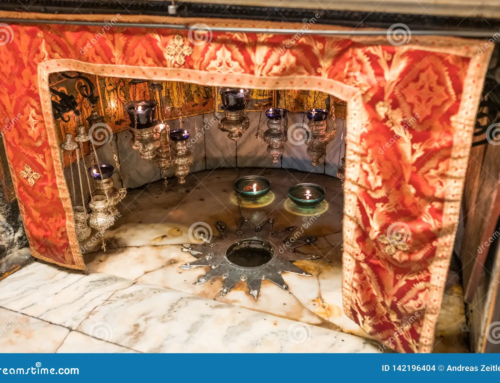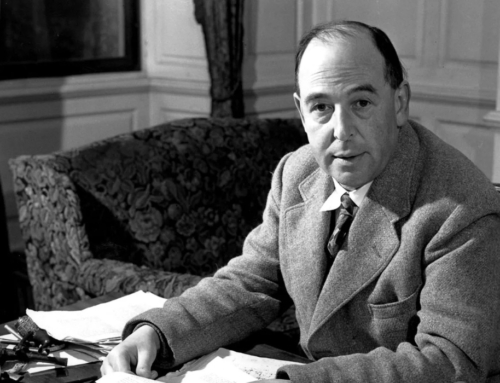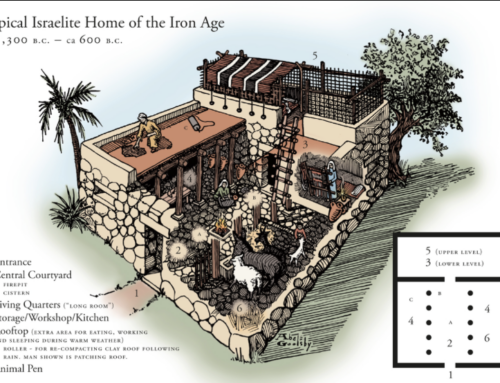The other day I was talking to an Evangelical Christian who works with the poor in our town. He’s a dedicated, prayerful, devout and hard working follower of Jesus Christ. He was brought up in a Christian home, church and culture that taught him that Catholics were not only wrong, but that the Catholic Church was the great whore of Babylon, Catholics were idol worshippers and the pope was the anti-Christ.
Now in his late sixties he’s getting to know some Catholics and learning to respect the Catholic Church and work with Catholics in his ministry. He’s one of many. They are simple, Bible reading, Christ loving full of faith Christians. Many of them are former Catholics.
So what would be better, to be a Catholic (like so many American Catholics) who accept the whole secular agenda on morality, whose religion is a mish mash of New Age spirituality and Moralistic, Thereapeutic Deism–Catholics who are indistinguishable in their beliefs and practices from mainstream Lutherans, Episcopalians and Methodists–or to be an Evangelical like the ones I’m thinking of?
Fact of the matter is, I have more in common with that Evangelical brother with whom we are working than a broad stream of my own fellow Catholics.
This is the real divide in the church now: not between Protestants and Catholics, but between those who believe in a revealed religion and those who believe in a relative religion.
What I mean is this: conservative, Evangelicals hold to some basics. They believe the Bible is the revealed word of God. They believe in the Incarnation, the Virgin Birth, the bodily resurrection, the Ascension and the Return of Christ in glory. They believe in miracles, answers to prayer and they believe sinners are in need of redemption by the blood of Jesus Christ shed on the cross. They believe in angels, demons and the hope of heaven and the fear of hell. They believe in the necessity of grace, the call to conversion, the need for repentance and faith in order to be saved.
Modernist Christians–whether they be Catholic, Lutheran, Episcopal, Anglican, Methodist–or whatever–believe this things are all symbols. They are religious concepts forged in an earlier age by credulous people who knew far less than we do. They think religion is a mutable phenomenon–something which was created by people in a certain age out of the stuff of their culture and worldview and that these symbols continue, but their meaning and application changes according to the culture in which the exist at any present time.
I believe God is using such Evangelicals to bring many people to the point of conversion. He is using them to bring the authentic, simple, real gospel message to many, and many are accepting Jesus Christ within those ministries and churches.
Does that mean their religion is the same as Catholic? No. Their religion is a minimalistic, truncated reduction of the fullness of the faith in the Catholic Church. Do they actively deny certain Catholic truths? Often they do–but usually in ignorance of what Catholics really believe. Do they hate Catholics and think Catholics are not even Christian? Sure, but usually they hate what they think Catholics are, not what we really are.
Would God prefer that they all become Catholic? Of course. He wants them to experience the fullness of the truth in the Catholic faith, but if we’re not doing the job, he’ll send in the second string. When non believers do come to the Catholic Church what do they find? Do they find a warm welcome and a loving, clear, unapologetic presentation of the Christian gospel? I’m afraid they are more likely to find a wishy washy politically correct homily, bland music in brutal buildings and something that feels like a cross between a campfire, a pep rally and a sewing circle.
Yes, yes, I know there are many good Catholics, faithful priests and wonderful parishes. I also know that Evangelicals are also burdened by shallow worship, heterodox pastors, modernist theology and awful worship.
My point is that in these confused and troubled times the old categories have simply broken down. The old labels don’t work. The old definitions are defied by a reality that is much more complicated and exciting than the neat categories and definitions that we would so long to be true.
So we should remember what the Catechism of the Catholic Church says about our separated brethren:
814 From the beginning, this one Church has been marked by a great diversity which comes from both the variety of God’s gifts and the diversity of those who receive them. Within the unity of the People of God, a multiplicity of peoples and cultures is gathered together. Among the Church’s members, there are different gifts, offices, conditions, and ways of life. “Holding a rightful place in the communion of the Church there are also particular Churches that retain their own traditions.”263 The great richness of such diversity is not opposed to the Church’s unity. Yet sin and the burden of its consequences constantly threaten the gift of unity. and so the Apostle has to exhort Christians to “maintain the unity of the Spirit in the bond of peace.”264
815 What are these bonds of unity? Above all, charity “binds everything together in perfect harmony.”265 But the unity of the pilgrim Church is also assured by visible bonds of communion:
– profession of one faith received from the Apostles;
-common celebration of divine worship, especially of the sacraments;
– apostolic succession through the sacrament of Holy Orders, maintaining the fraternal concord of God’s family.266816 “The sole Church of Christ [is that] which our Savior, after his Resurrection, entrusted to Peter’s pastoral care, commissioning him and the other apostles to extend and rule it…. This Church, constituted and organized as a society in the present world, subsists in the Catholic Church, which is governed by the successor of Peter and by the bishops in communion with him.”267
The Second Vatican Council’s Decree on Ecumenism explains: “For it is through Christ’s Catholic Church alone, which is the universal help toward salvation, that the fullness of the means of salvation can be obtained. It was to the apostolic college alone, of which Peter is the head, that we believe that our Lord entrusted all the blessings of the New Covenant, in order to establish on earth the one Body of Christ into which all those should be fully incorporated who belong in any way to the People of God.”268
Wounds to unity
817 In fact, “in this one and only Church of God from its very beginnings there arose certain rifts, which the Apostle strongly censures as damnable. But in subsequent centuries much more serious dissensions appeared and large communities became separated from full communion with the Catholic Church – for which, often enough, men of both sides were to blame.”269 The ruptures that wound the unity of Christ’s Body – here we must distinguish heresy, apostasy, and schism270 – do not occur without human sin:
Where there are sins, there are also divisions, schisms, heresies, and disputes. Where there is virtue, however, there also are harmony and unity, from which arise the one heart and one soul of all believers.271
818 “However, one cannot charge with the sin of the separation those who at present are born into these communities [that resulted from such separation] and in them are brought up in the faith of Christ, and the Catholic Church accepts them with respect and affection as brothers …. All who have been justified by faith in Baptism are incorporated into Christ; they therefore have a right to be called Christians, and with good reason are accepted as brothers in the Lord by the children of the Catholic Church.”272
819 “Furthermore, many elements of sanctification and of truth”273 are found outside the visible confines of the Catholic Church: “the written Word of God; the life of grace; faith, hope, and charity, with the other interior gifts of the Holy Spirit, as well as visible elements.”274 Christ’s Spirit uses these Churches and ecclesial communities as means of salvation, whose power derives from the fullness of grace and truth that Christ has entrusted to the Catholic Church. All these blessings come from Christ and lead to him,275 and are in themselves calls to “Catholic unity.”276
The Holy Spirit is at work in his whole church in ways that are so much bigger than our limited vision. For my part, I want to hold hands with all those who sincerely love and follow Christ. Do I wish them to come into full communion with the Catholic Church? Of course. That’s why I work with them, why I am engaged in apologetics and why every year it is our joy to receive some of them into the Catholic Church.
Do I condemn the modernists who seem to me to be outside this sheepfold–no matter what their denomination allegiance?
Nope. I leave them to God. The wheat and the weeds grow together. He has instructed us to get on and mind our own business and leave him to sort things out on judgement day.







Leave A Comment
You must be logged in to post a comment.